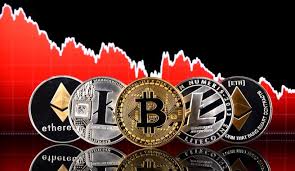
Mastering the Art of Crypto Futures Trading
As the cryptocurrency market continues to grow and evolve, many traders are turning their attention to a particular strategy: Crypto Futures Trading. This form of trading allows investors to speculate on the future price of various cryptocurrencies, offering unique opportunities and risks. To learn more about this exciting field, Crypto Futures Trading visit website.
What is Crypto Futures Trading?
Crypto futures trading involves entering into agreements to buy or sell a specific amount of cryptocurrency at a predetermined price at a future date. These contracts offer traders a chance to profit from both rising and falling markets by allowing them to short (sell contracts) or long (buy contracts) cryptocurrencies. Futures trading can be leveraged, meaning that traders can control larger positions than their initial margin, which amplifies both potential gains and potential losses.
The Basics of Futures Contracts
A futures contract is typically standardized and traded on a futures exchange. Each contract has a specified expiration date and quantity of the asset included in the contract. In the context of crypto futures, various cryptocurrencies—such as Bitcoin, Ethereum, and others—can be traded. Traders who enter into a contract expect to either take delivery of the asset or offset the contract before expiration, usually for profit.

Types of Crypto Futures
There are primarily two types of futures contracts in the crypto space: cash-settled futures and physically settled futures.
- Cash-Settled Futures: In this type, the trader doesn’t actually buy or sell the underlying asset at maturity. Instead, a cash payment is made based on the difference between the contract price and the spot price on the expiration date.
- Physically Settled Futures: These contracts require the actual delivery of the cryptocurrency upon expiration. Most traders prefer cash-settled futures, as they do not involve the complexities of physically transferring and securing digital assets.
Why Trade Crypto Futures?
There are several compelling reasons why traders choose to engage in crypto futures trading:
- Leverage: Futures trading allows traders to amplify their positions without needing to invest the full amount of capital. This means they can potentially earn higher returns, but they also face increased risk.
- Hedging: Many companies and investors use futures contracts to hedge against price fluctuations in the crypto market. This strategy can help mitigate losses from adverse price movements.
- Market Access: Futures markets often operate 24/7, enabling traders from around the globe to participate and trade whenever market conditions are favorable.
- Diversification: As cryptocurrencies behave differently from traditional assets, futures trading allows investors to diversify their portfolios and tap into these unique market dynamics.
Strategies for Successful Crypto Futures Trading

Success in crypto futures trading requires a well-defined strategy, disciplined risk management, and an understanding of market behavior. Here are some strategies traders commonly employ:
- Trend Following: This strategy involves analyzing price trends and making trades based on the continued momentum of a certain direction (upward or downward). Traders often use tools like Moving Averages to identify trends.
- Arbitrage: Traders take advantage of price discrepancies for the same asset across different markets. Buying low on one exchange while simultaneously selling high on another can yield profits.
- Scalping: This strategy involves making multiple trades throughout the day, capitalizing on small price movements. Scalping requires a keen eye on market conditions and quick decision-making.
- News Trading: Market sentiment can be heavily influenced by news events. Traders focusing on news trading must stay updated on the latest developments, as significant news can lead to substantial price volatility.
Risks in Crypto Futures Trading
While there are numerous opportunities in crypto futures trading, it is also fraught with risks:
- Market Volatility: Cryptocurrencies are notorious for their price volatility. Large price swings can trigger margin calls and lead to significant losses.
- Leverage Risks: While leverage can magnify profits, it can also amplify losses. If the market moves against a trader’s position, they could lose more than their initial investment.
- Liquidation Risk: In leveraged trading, if the market goes against your position, and you do not maintain sufficient margins, your position could be liquidated automatically.
- Regulatory Risks: The regulatory landscape surrounding cryptocurrency trading is ever-evolving. Changes in regulations can impact the crypto futures market and create uncertainty.
Conclusion
Crypto futures trading offers a fascinating avenue for profit in the ever-changing cryptocurrency landscape. With the right strategies, disciplined risk management, and a continuous learning approach, traders can navigate the complexities of this market. As always, it is essential to do thorough research and consider the inherent risks before diving into any trading venture. As you explore the world of Crypto Futures Trading, remember that education and practice are key to becoming a successful trader.

